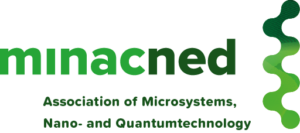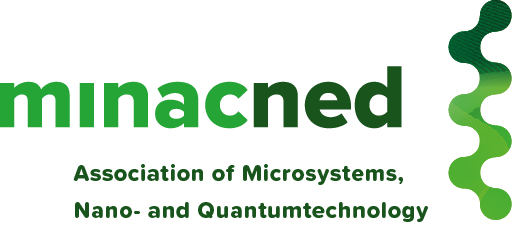In response to the corona crisis, the MESA+ NanoLab has been closed for development and research since 15 March. The same also applies for other buildings on campus, though several exceptions have now been made. The NanoLab, for instance, is home to a limited number of development activities that, due to their urgent nature, will be continued.
Three companies (Lionix, MedSpray and Micronit) are currently hard at work in the NanoLab, where they are developing devices that can be used to detect and help treat the coronavirus. To do so, they need access to the facilities in the NanoLab. In consultation with the faculties and with safety as our primary concern, MESA+ is constantly evaluating which activities can still take place in the NanoLab.
Lionix
Testing equipment is needed to detect the COVID-19 virus itself and to detect immunological biomarkers in the blood; rapid diagnostics that can be used to detect cases, monitor the clinical picture in patients and establishing immunity. Lionix devices are suitable to detect viruses in a ‘swab’ sample, as is common nowadays, and to analyse the course of the infection and immunity for the virus based on blood-borne biomarkers. Similar photonic devices, though with less sensitive biochips, are known to be able to detect viruses. Read more about Lionix.
MedSpray
Medspray is developing a device that can be combined with an inhaler or a ventilator to administer medication to a patient, which will also see the responsibility for administering medication shift from the supplier to the specialist. This technology has already been put into practice in collaboration with the Radboud hospital and, if proven effective, will be rolled out further.
Micronit
Micronit produces microfluidic products that make a crucial contribution to identifying the virus. Though they operate their own cleanroom, several process steps take place in the MESA+ Nanolab. Micronit initiated the Viralert Foundation, partnering up with businesses and knowledge institutions to develop tests for corona immunity. Read more about Micronit.
Research groups
Several research groups have now also come up with new corona and corona immunity tests and require access to the NanoLab for the development process. We are looking into ways in which the university and the NanoLab can support these developments without compromising on safety. For questions, please contact Gerard Roelofs, head of MESA + NanoLab. Read more about Micronit.
Source article: MESA+ news

